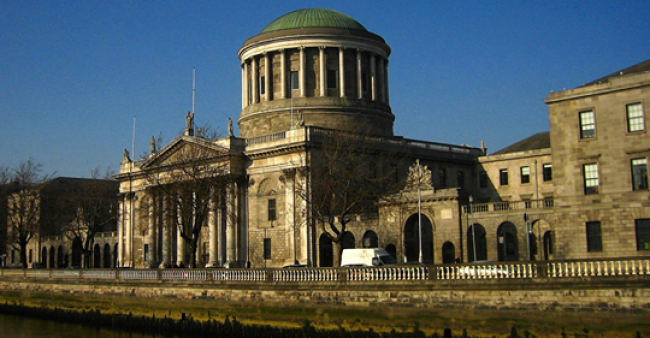Articles Menu

Initially filed in 2017, the suit alleges that Ireland’s National Mitigation Plan doesn’t live up to the promises the country made to reduce carbon pollution under the Paris Agreement. The group also contends that by failing to take effective action against the climate crisis, the plan violates Ireland’s Climate Act, the Irish Constitution, and the European Convention on Human Rights. FIE is asking the court to force the Irish government to strengthen its plan with more ambitious emissions reduction goals.
“This is Ireland’s chance to determine not only what rights citizens have to call a government to account, but also if the ‘European Convention of Human Rights and/or Ireland’s international obligations’ must be enforced by the Irish Courts--and what that means in terms of climate change,” said FIE director Tony Lowes in email.
Other climate human-rights suits have fared well in high courts around the world. The Supreme Court of Justice of Columbia in 2018 ruled that the country must protect the Columbian Amazon from deforestation in the Dejusticia case, which was filed by 25 young people. The Netherlands Supreme Court last year upheld a landmark human rights ruling in the Urgenda case, affirming that governments are obligated to protect their citizens from climate change. In the U.S., Juliana v. U.S., the landmark youth-led Constitutional climate lawsuit may well end up before the Supreme Court, too.
The Irish High Court dismissed the FIE climate case in September 2019, ruling that the country’s National Mitigation Plan was in line with both Irish and European law, and did not violate the European Convention on Human Rights. In his decision, Justice Michael MacGrath acknowledged that the need for action on climate change is “undoubted,” but said the law allows the Irish government wide discretion regarding how it will meet its obligations.
In its decision to hear the case, Ireland’s Supreme Court referred to the country’s newly acknowledged constitutional right to a healthy environment, which was won during the dismissal of a separate case brought by FIE over the creation of a new runway at Dublin’s airport. The court ruled FIE had no standing in the case and allowed the runway to proceed, but did recognize the constitutional right in its dismissal.
“It’s pleasing to us that the court has agreed to address ‘the broader environmental rights under the Constitution’ – a reference to our [lost] Airport Runway case two years ago,’” Lowes said. “The Court will determine if this right is indeed ‘unenumerated’—‘derived’— from our constitution, and if so it will be protected from legal challenge and may become a key to future environmental litigation.”
A spokesperson for Ireland’s Department of Communications, Climate Action and Environment declined to comment on ongoing legal proceedings, but in a statement said “the government is focussed on implementing the Climate Action Plan, which sets out the actions we need to take in every department and every sector to achieve our climate targets.”
Arguments will be heard by the Irish Supreme Court on June 22 and 23.
[Top photo: Ireland's Supreme Court. Photo by Kieran Lynam, via Wikimedia Commons]